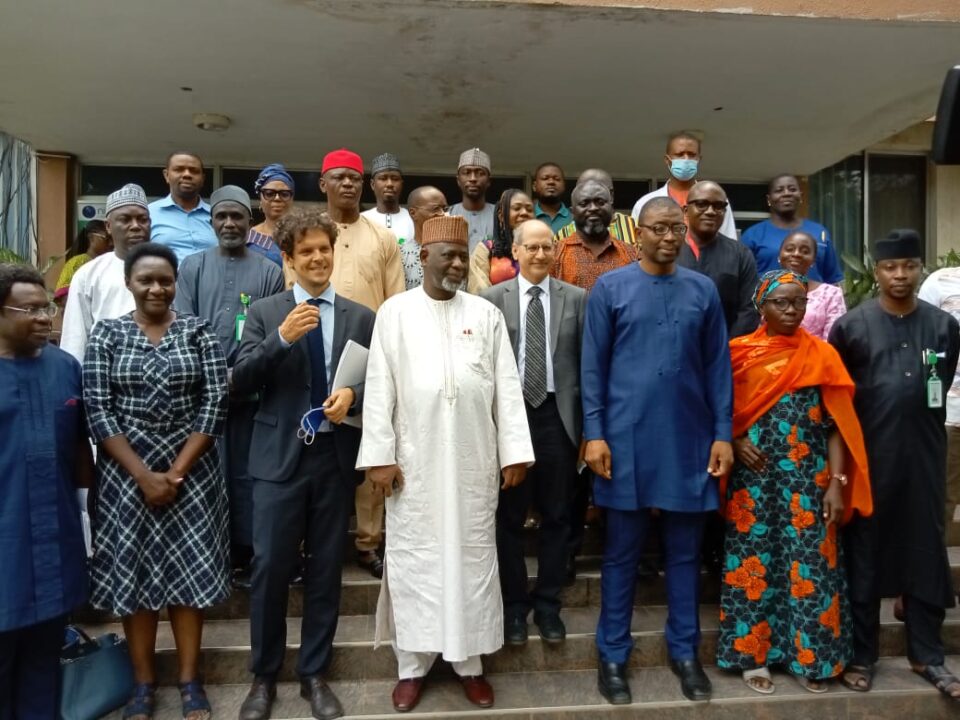The World Health Organisation (WHO) and the National Health Insurance Agency (NHIA )on Friday, paid an oversight visit to NISA Garki Hospital Abuja.
The Chief Medical Officer of NISA Garki Hospital, Adamu Onu who received the delegation told newsmen that the visit was on issues pertaining to healthcare financing and social health insurance.
He said, “They have decided to come to visit us here in NISA Garki hospital to find out how we have been able to successfully deliver healthcare under the NHIA Framework.
“We had a fruitful interaction with them where we highlighted the processes we have been using here to deliver care.”
NISA Garki Hospital established in 1986, has been a shining example of a successful public-private partnership in healthcare delivery with its attendance to more than 2 million patient encounters, over 40 open heart surgeries, more than 26 kidney transplants, as well as subsidised IVF services and over 100 hip and knee joint replacement surgeries. It has also carried out training in Family Medicine, O&G, Paediatrics, Anaesthesia & Assisted Reproductive Technology.
It is equipped to world standard with the following facilities: 32-slice CT scan machine, 0.3T MRI machine, state-of-the-art 5-bed ICU, Neonatal ICU & SCBU, 24-hour dialysis service, two heart-lung machines, stress ECG, holter monitor, fibroscan machine and EEG & EMG.
A presentation by the hospital earlier, showed that having served NHIA patients since 2007, NISA Garki hospital has expanded its operation to 24 hours a day, 7 days a week with no strikes or interruptions in service. Its GOPD & Accident and Emergency services are also available 24 hours a day.
From August 2016 to July 2022, the hospital has increased its NHIA enrollee figure from 16,836 to 35,555.
In 2016, its NHIA operationalisation was characterised by waste of resources, inefficiency, patient dissatisfaction among others, due to NHIA operational guidelines at the level of the hospital as well as the lack of standardized processes for handling NHIA-related operations in the hospital.
The presentation further shows that the hospital has made reforms by defining standards and implementing standardised processes for dealing with NHIA-enrolled clients. Also, from September 1, 2016, Garki Hospital consolidated all NHIA operations in one strategic unit through business rules, documented SOPs and assigned responsibilities and clear reporting lines.
The presentation also highlighted challenges in the areas of health insurance fraud, failure of HMOs in making prompt payments, denied claims and unsustainable tariffs.
The presentation therefore recommended continuous improvement in quality and development of stochastic models for cost-effective care through ML
Speaking with newsmen after the presentation, the Head of Health Financing at WHO, Joseph Kutzin said that government’s recent passage of the law to make health insurance mandatory on May 19 was an important milestone for moving forward.
Kutzin stated that there was need to meet the conditions of compulsory participation and provision of subsidies.
He noted that policies have been put in place in the hospital to ensure value for money, but however acknowledged that there is always higher demand than supply as regards financing of the NHIA Framework while adding that the process of improvement is continuous.
He said, “Speaking on the financing side, there are two conditions that are needed to move in that direction: one is the idea of compulsory automatic participation, the other is the provision of subsidies, so it is not right if people are forced to pay. There have to be subsidies provided to ensure that everybody can make it. However, there is no country in the world that can make progress by just putting in more money, how you use the funds is equally important.
“Systems have been put in place as we’ve seen in the hospital already, to control the approach to financing to get the best value for money. It’s a process that never stops.
“As well, new technologies have come on the market, demand is always greater than supply, there’s always going to be traitors but to the extent you have data unified, you can make these choices explicitly.
According to him, one of the major challenges with the subsidies which are meant to come from government is the global economic down turn which has affected tax revenue.
He added that government’s approach to ensuring utilisation is to ensure that money is put into coverage for vulnerable populations, assuring that when the economic situation improves, more people will be covered.
“The subsidies will have to be coming from the government’s budget and this is one of the major challenges because as we know, the economic situation here and around the world as regards government’s tax revenue is constrained. There have been some recent developments such as the passage of the tax
“Government’s approach in management of misappropriation is by putting money into coverage for vulnerable populations, that way government can match its budget to outputs for people, rather than just funding inputs. If you put money into the system you need to be able to see what you’re getting from it.
“But it is also something that won’t change overnight. As government revenues increase, more people will be able to be covered from the source.”
He further said that “there are also other mechanisms. For example, voluntary donation. But in the meantime, it is still government revenue which means that ultimately it is a political choice that is made and has to be continually made to prioritise this in the public, for the vulnerable population.



